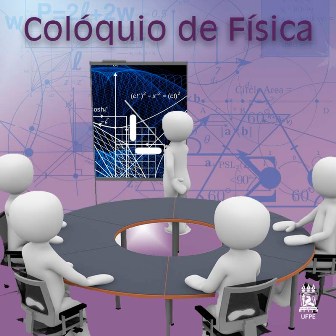- UFPE/
- Institucional/
- Centros Académicos/
- Campus Recife/
- Centro de Ciências Exatas e da Natureza (CCEN)/
- Notícias CCEN/
- Física promove colóquio “Cosmic strings configurations in a non-conservative gravity”
Física promove colóquio “Cosmic strings configurations in a non-conservative gravity”
Colóquio será com o pós-doutorando do DF Eduardo André de Figueiredo Bragança na sexta-feira (26), às 16h, no auditório do DF

O Departamento de Física (DF) da Universidade Federal de Pernambuco (UFPE) realiza o colóquio “Cosmic strings configurations in a non-conservative gravity” na sexta-feira (26), às 16h, no auditório do DF. O colóquio será com o pós-doutorando do DF Eduardo André de Figueiredo Bragança.
Bragança possui graduação em Licenciatura em Física pela Universidade Federal do Pará (2010), mestrado em Física (2013) pela Universidade Federal da Paraíba e doutor em Física (2017) pela Universidade Federal da Paraíba, com período sanduiche de um ano no Istituto Nazionale di Fisica Nucleare, Laboratori Nazionale di Frascati, na Itália.
Resumo
The formulation of a least action principle suitable for the description of dissipative systems is the object of a longstanding discussion within theoretical physics. In 1930, Herglotz succeeded in the construction of an extension of a classical mechanics in which dissipative effects possibly appear already at the action level. Only recently a covariant version of this theory was proposed by Lazo et al where a new gravitational theory which encompasses the description of the dissipative systems. In this talk, we will show the influence of this gravitational theory in certain cosmic strings configurations. For the Abelian-Higgs string, we derived the dynamical equations and provide numerical solutions for the behavior of the Higgs and gauge fields and the profile of the metric functions considering the parameter that characterizes the model. In addition, from a numerical approach, we find how the inner structure of the cosmic string is affected by the new gravitational theory, by analyzing the deviations on the mass per unit length and the deficit angle of the string. Next, from an analytical treatment, we obtain the vacuum solution and analyzed a thick cosmic string model, where the defect is endowed with a finite core generalizing previous results in the literature.






